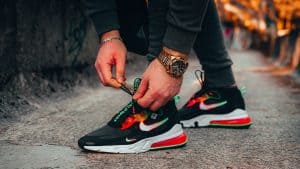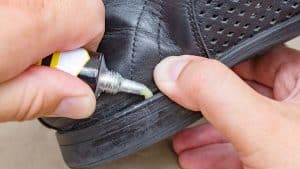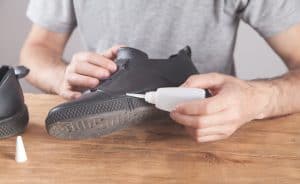Buying a new pair of shoes is a fun process for the most part. However, what if the new shoes you buy squeak each time you walk in them? Especially for leather boots, this can become a super annoying problem. Is there any way to stop leather boots from being so squeaky?
Luckily, we've done some digging and have the answers below.
If you're struggling with squeaky leather boots, we recommend removing the insoles and sprinkling a bit of talcum powder. You want to use the powder between the footbed and the inner sole to get the best results.
That's because, most of the time, leather boots squeak because there's friction between the insoles and the rest of your footwear. If the squeaking comes from the soles of your shoes, you can use a knife to texturize the bottom of your boots.
As we start this article, we will cover all things squeaky leather boots and discuss how to stop this from happening. Whether you're new to leather footwear, have a super squeaky pair of leather shoes, or need other tips for breaking them in, we're here to help. With that said, let's dive right into this topic!
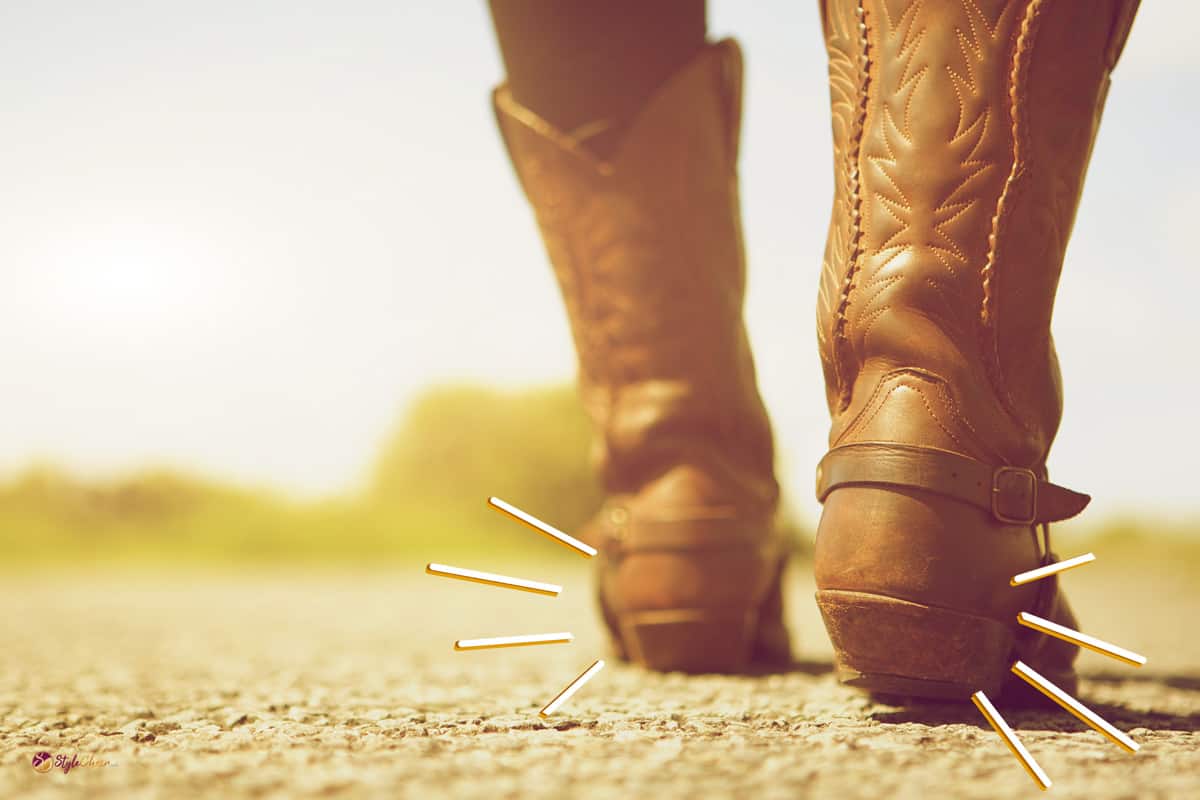
This article may include affiliate links and elements that were carefully created by our team using advanced ai to help you envision the best style advice.
Why Are My Leather Boots So Squeaky?
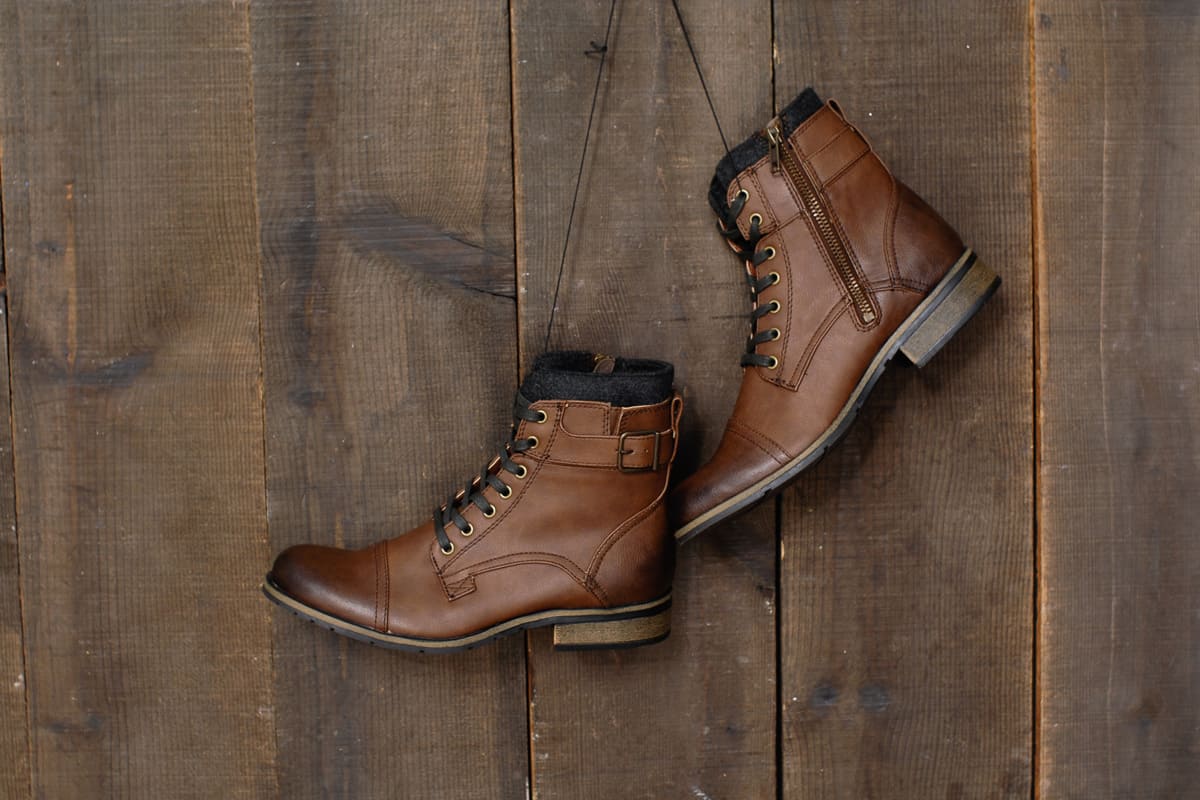
In general, leather boots will be squeaky because of the friction of the outsole against the ground. Each time you step down, this friction comes to a head in the form of a squeaking sound.
Your boots will likely stop being so obnoxious as time goes on, but this can take longer for some. Many shoe experts claim that hard rubber soles on leather work boots tend to be the most squeaky.
You may even notice your boots squeaking louder than usual on concrete, hardwood, or tile floors. If you suspect the bottom of your shoes is causing the squeaking, you can texturize them using a knife to scrape the soles.
Again, this is more of a new shoe problem and will go away after a few wears. Unlike friction inside your boots, friction between the sole and the ground eventually stops being so bothersome.
As we said, the insole and base of your leather boots will cause the squeaking long-term, which requires a bit of talcum powder between them. Either way, this should be easy to remedy.
Do All New Leather Boots Squeak?
To an extent, you should expect a bit of squeaking from a new pair of leather boots. Since leather is already a loud material, it's no surprise that your shoes will be squeaky at first.
However, it's important to note that new leather boots should not squeak from the inside. Remember, if this happens, that means there is friction between the insole and base of your footwear.
Unlike the bottom of your boots being squeaky, the interior should be quiet and comfortable.
Sometimes, even if you purchase the right size of shoes, they won't fit you like they're supposed to. Leather boots, especially, can be uncomfortable and loud for the first few wears, which you'll have to deal with.
There's always the talcum powder or knife to the sole technique to try and remedy this noise, so don't feel like you're trapped being the squeakiest person in the room.
Furthermore, if the leather boots you have continue to be loud after a few wears, it might be time to swap them out for a new size or brand.
How Long Does It Take For Leather Boots To Stop Squeaking?
Since leather shoes tend to become quieter as you wear them, you shouldn't have to listen to squeaking for long. Typically, new leather boots will be squeaky the first few hours they're on.
This could be the soles adapting to being moved around, pressing down onto the floor. It could also be the inside of your shoes being a little tight or loose, causing friction.
However, this should not be for very long. As we mentioned, the interior of your new leather footwear should be pretty quiet to start, but that's not to say mistakes during production don't happen.
The first thing you want to do is try your shoes on before purchasing or wearing them out. Do a couple of laps around the store or your home. See how the leather sounds and feels.
You'll often hear a bit of squeakiness: but this should not be headache-inducing.
Moreover, you may need to grab a knife and cut the soles of your shoes, creating a "gash-like" appearance on each base. This will also help give your shoes extra grip on slippery surfaces.
How Can I Stop Leather Boots From Squeaking?
The best method to stop leather boots from squeaking is to remove the insole and sprinkle talcum powder. Remember, using this powder between the insole and sole of your boots will reduce noise and help your shoes move more fluidly.
You may even want to massage the powder throughout the interior of your boot to help cover as much of the space as possible.
Especially with newer leather goods, they can sometimes be too tight, causing friction to happen. Therefore, using a bit of powder in each shoe will calm them down significantly.
Again, you may still hear minor squeaks until you break the boots in: but it will be much better.
On top of that, you might want to focus on the base of your shoes if that's where the squeaking comes from. To solve that problem, grab a pocket/tactical knife and create gashes on the bottom of your boots.
With that said, you don't have to get crazy with this. Try and make surface cuts, avoiding going too deep. The last thing you want to do is cut right through your brand-new leather footwear.
Should I Size Up For Leather Boots?
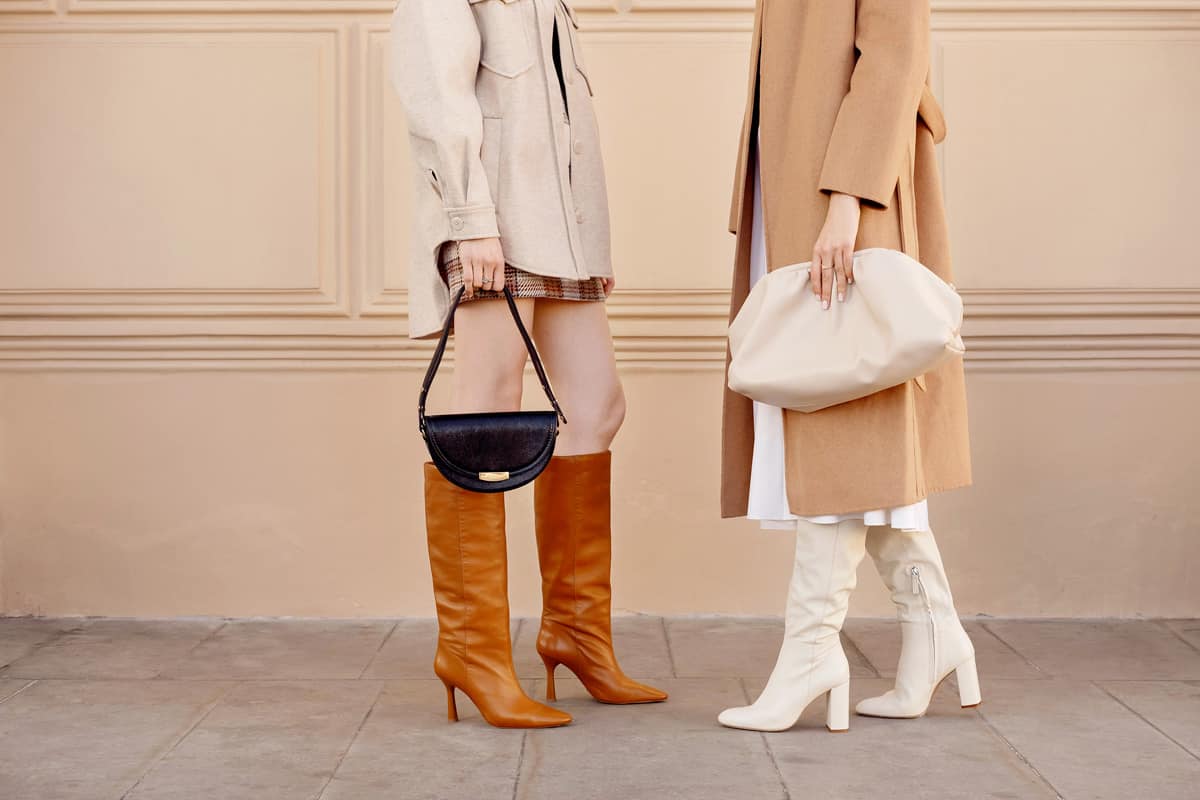
When it comes to sizing up for leather boots, this can depend. Since leather shoes are typically on the tighter side, it could be worth it to go a half or full size up.
For example, many shoe experts recommend testing the boots with socks on and seeing if they're comfortable. If the boot feels tight with the sock on: you should go up a half or full size.
Although some people wear very thin socks or none with their footwear, you never want to buy leather shoes that feel tight out the gate. This will only be more uncomfortable as time goes on.
Another thing to remember while shopping is that it's always better to have slightly loose leather boots than ones you can't move in.
Unlike a tight pair of pants, you might be able to stretch, loosening leather fibers can be nearly impossible. Of course, all new shoes are a little awkward at first, but they should never hurt.
We depend on our feet to get around, so always try and prioritize your comfort over design/branding.
Why Do My Leather Boots Feel So Tight?
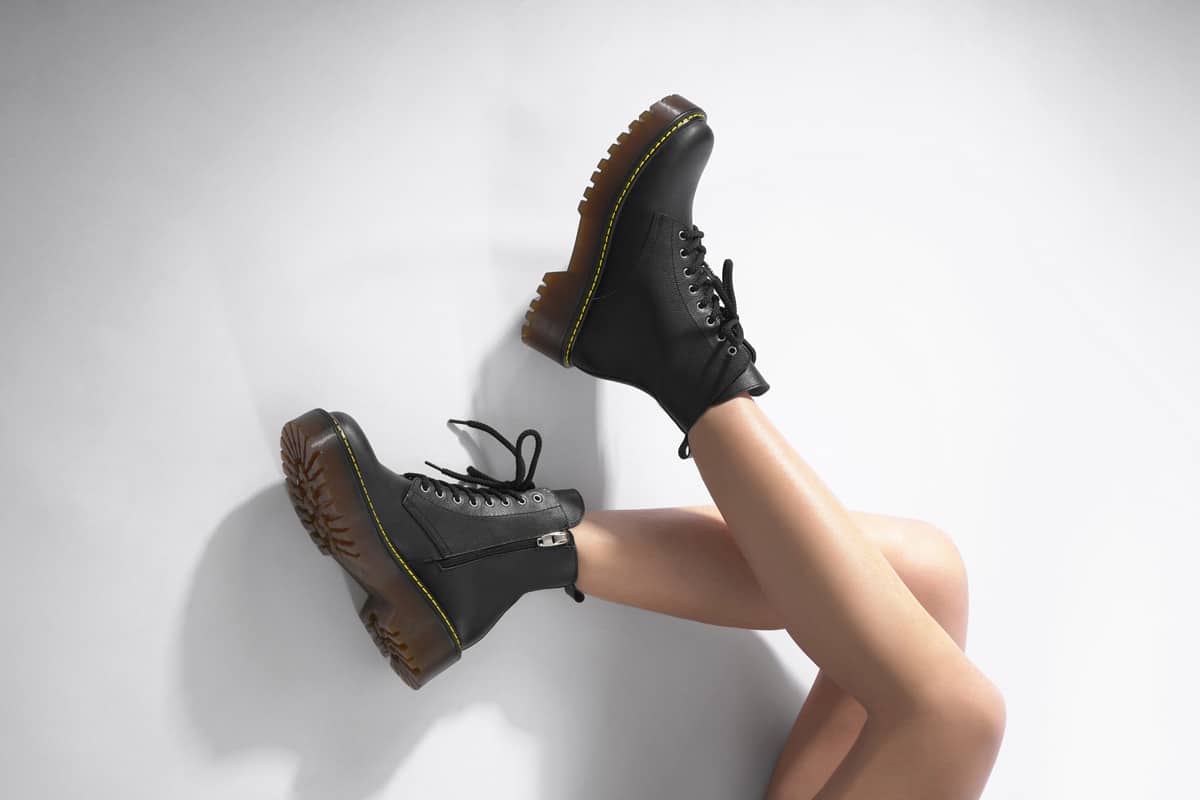
If you have new or older leather boots that start to feel tight, this could be for a few reasons. First, exposure to the air, sun, wear, and your foot's natural movements can all cause the leather to lose its elasticity.
Over time, wear and tear can take their toll on your leather footwear. You also want to remember that brand-new leather hasn't been able to adapt to a human foot, which explains the upfront tightness.
According to Baker Shoe, leather is pliable and flexible, softening and stretching as you wear it. Therefore, you should expect your shoes to adapt quickly to your feet and lifestyle.
That said, depending on the quality of leather footwear, this process could be a bit different. Faux leather does not behave the same way that genuine material does.
You may experience more squeaking with synthetic leather boots, so that's another thing to consider. A good rule of thumb is that genuine fabrics and materials will always be more comfortable than the alternative.
Give your leather boots some time to adapt, and they should feel good!
Do Leather Boots Loosen Over Time?
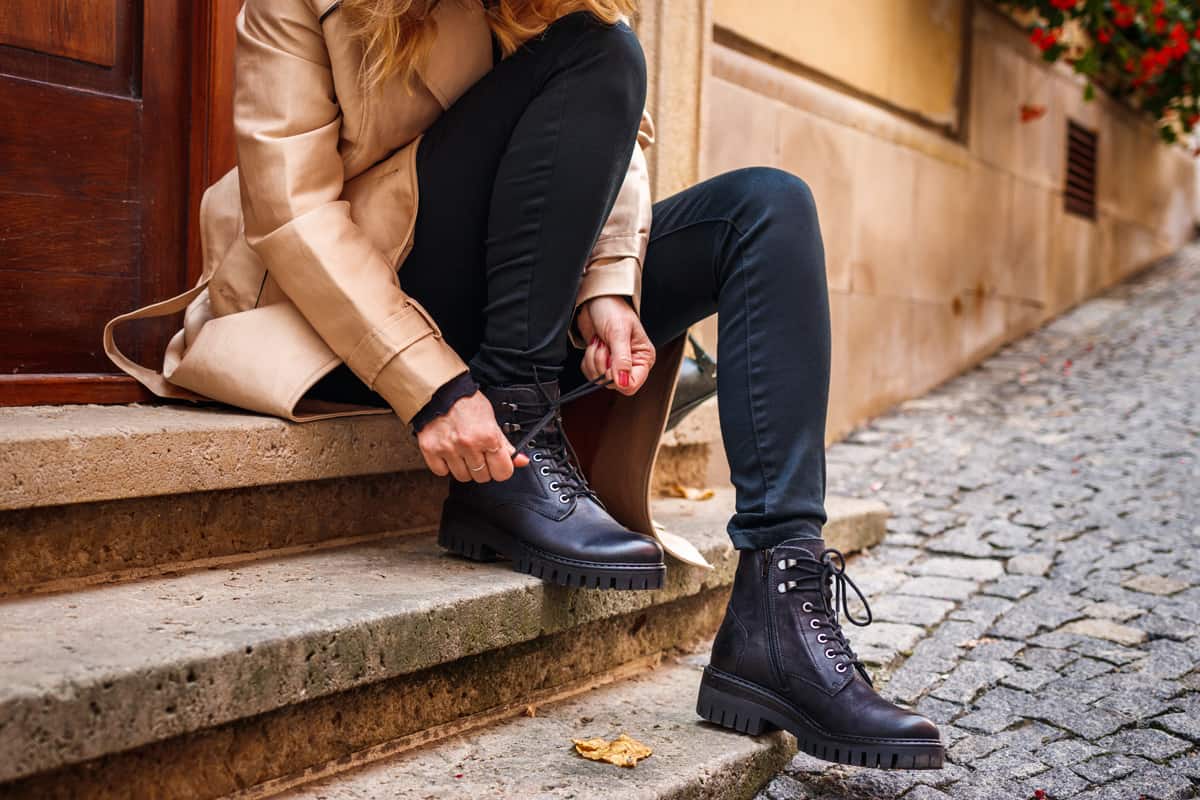
As long as you wear your leather boots, they should loosen up over time. As we covered, leather tends to adapt to your feet and lifestyle the more you wear it.
Most experts agree that leather eventually softens quite a bit, becoming more flexible for you to wear. When it comes to your boots, this same theory applies. The more you wear leather boots, the more comfortable they are.
A big reason for this is that each time you put on your shoes and walk around, you're breaking them down. Therefore, if you have a brand-new pair that are squeaky and tight, this will subside after 1-2 more outings.
An easy way to get ahead of this curve would be wearing your new leather around your house. Even while you do chores or walk the dog, having your boots on for more than an hour or two every few weeks will help them loosen.
Who doesn't want to rock a nice pair of leather boots while walking their pup?
To Finish Things Up
Whether you have new leather boots that won't stop squeaking or haven't figured out why your old boots make noise, it's always good to start at the sole.
From what we found, leather boots usually squeak because of friction between their sole and the ground or the insole and base of the shoe.
To fix this, remove the insole from your shoe and sprinkle a bit of talcum powder. Massage it into the inside of your boots, and you should be good to go. You can also use a knife to create texture lines on the bottom of your leather boots, which will help with that squeaking.
And while we have your attention, check out these helpful related posts!

